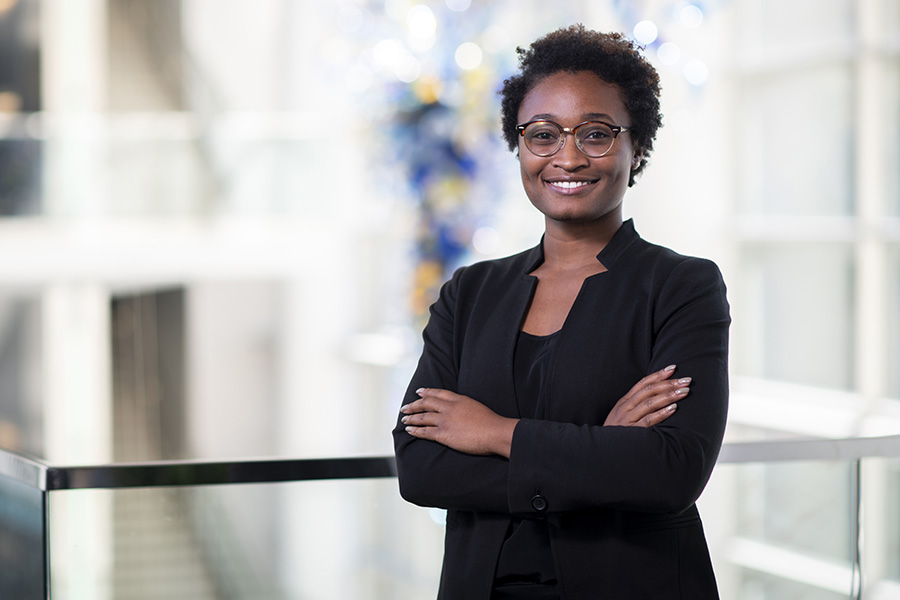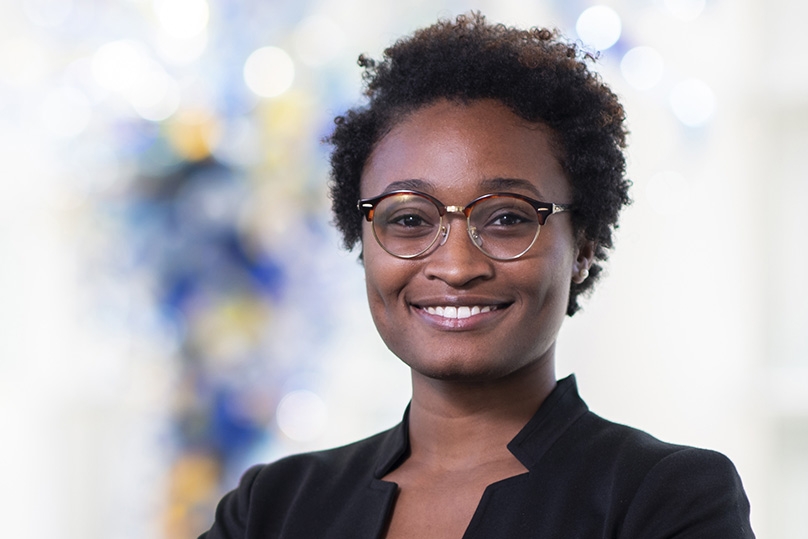 |
Ph.D. student Victoria Dean became an engineer to, in her words, “save the world.” Now she’s one of a small group of young leaders who’ve earned the support of the Robert Wood Johnson Foundation to collaborate and use their influence to make communities healthier and more equitable.
The foundation named Dean to its 2018 class of Health Policy Research Scholars this month, pledging to support her work for up to five years. She’s the only person from Georgia selected to participate.
“This program is a unique opportunity to learn about how research can work hand in hand with policy and potentially increase the effectiveness of the change you wish to see in a community,” said Dean, who’s pursuing an MBA at Georgia Tech in addition to her doctoral studies with Carlton S. Wilder Assistant Professor Joe Brown in the School of Civil and Environmental Engineering.
Health Policy Research Scholars are typically Ph.D. students from underrepresented populations and fields as wide-ranging as economics and epidemiology, according to the foundation. What they have in common is the desire to use their work to improve equity and health. That mission spoke to Dean, who said she’s focused on “research that seeks to address various environmental, educational and health equity disparities in marginalized communities.”
“I feel personally connected to many of the communities that these inequities impact the most,” she said.
“My research interests, although in environmental engineering, have a strong sense of public health. Because of this, I see value in the opportunity to work with an interdisciplinary cohort of students interested in finding solutions to similar problems in different ways.”
Dean and her colleagues will receive coaching from national leaders and opportunities to work together to expand their impact on policy and public health.
“Winning this support gives me clarity and freedom; I am able to pursue projects I’m passionate about with less consideration for the source of funding for these projects,” Dean said. “It’s inspirational to have financial support from the foundation, but also to have emotional support from my very diverse cohort of 39 other research scholars around the country.”

